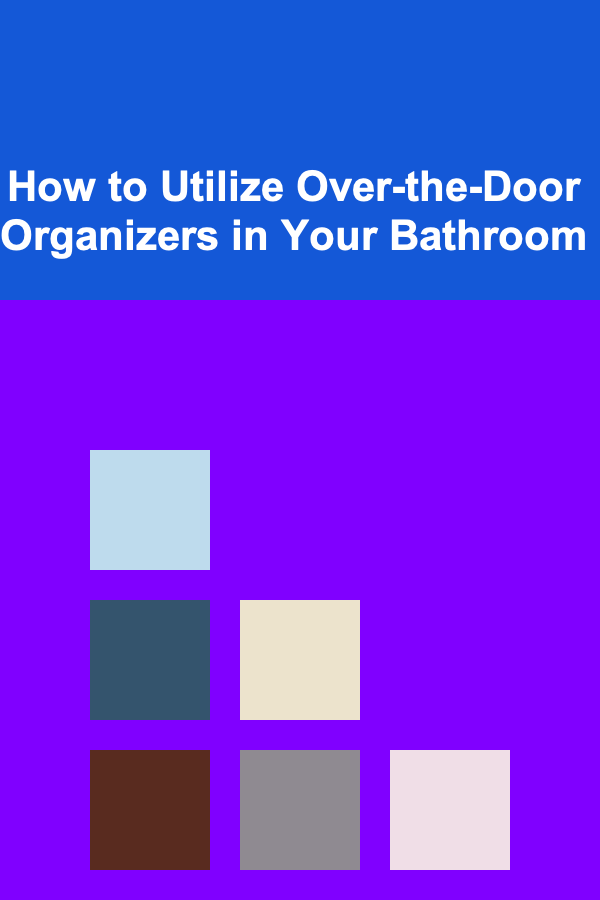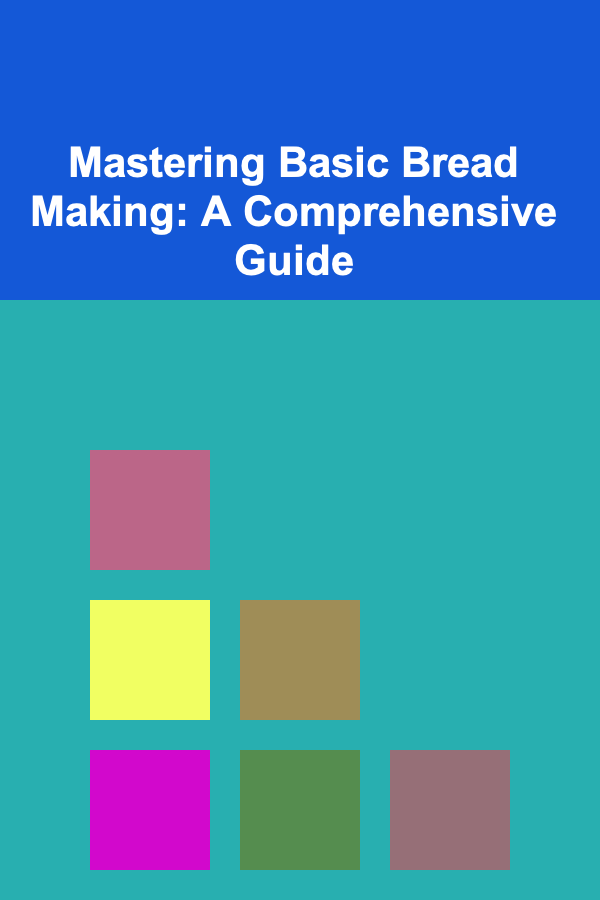
How to Manage Home Insurance Costs Within Your Budget
ebook include PDF & Audio bundle (Micro Guide)
$12.99$7.99
Limited Time Offer! Order within the next:

Home insurance is one of the essential financial tools for homeowners, providing peace of mind by protecting your property and belongings against unexpected events such as fire, theft, vandalism, or natural disasters. While having insurance is crucial, it can also represent a significant monthly or annual expense for homeowners. Managing home insurance costs within your budget requires a combination of smart decision-making, strategic planning, and an understanding of how insurance premiums are calculated. In this article, we will explore various methods to help you reduce and manage your home insurance costs effectively.
Understanding Home Insurance and Its Costs
Before diving into strategies for managing home insurance costs, it's important to understand what home insurance is and the factors that influence its pricing. Home insurance provides financial protection for your home and possessions in case of damage or loss due to various causes such as fire, theft, natural disasters, or accidents. It typically consists of several types of coverage:
1. Dwelling Coverage
This type of coverage protects the structure of your home, including walls, roof, floors, and foundation, against damages caused by fire, storms, and other disasters.
2. Personal Property Coverage
This protects your belongings, such as furniture, electronics, clothing, and other personal items, from damage or theft.
3. Liability Coverage
Liability coverage provides protection in the event that someone is injured on your property or if you are responsible for damage to someone else's property.
4. Additional Living Expenses (ALE)
If your home becomes uninhabitable due to a covered event, ALE coverage helps pay for additional living expenses such as temporary housing.
5. Medical Payments Coverage
This type of coverage helps pay for medical expenses if someone is injured on your property, regardless of who is at fault.
Home insurance premiums are influenced by several factors, including:
- Location: The area where you live plays a significant role in your insurance costs. For example, living in an area prone to natural disasters like hurricanes, floods, or earthquakes can lead to higher premiums.
- Home Value: The higher the value of your home and its contents, the more it will cost to insure.
- Coverage Limits: The more comprehensive your coverage, the higher your premiums will be. A policy with higher limits of protection costs more.
- Deductible: The deductible is the amount you pay out of pocket before your insurance kicks in. Higher deductibles typically result in lower premiums.
- Home Age and Condition: Older homes or homes with outdated systems (plumbing, electrical, etc.) may be more expensive to insure due to a higher risk of claims.
- Claim History: If you've made several claims in the past, your insurer may raise your premiums or choose not to renew your policy.
- Credit Score: In many places, insurers use your credit score to assess risk. A poor credit score can lead to higher premiums.
- Safety Features: Homes with security systems, smoke detectors, fire extinguishers, and other safety measures often receive discounts on premiums.
While you cannot control all these factors, there are several strategies you can implement to manage your home insurance costs more effectively without sacrificing necessary coverage.
Strategies to Lower Your Home Insurance Costs
1. Shop Around and Compare Quotes
One of the most effective ways to reduce your home insurance costs is by comparing quotes from multiple insurance providers. Insurance premiums can vary widely depending on the company, the coverage options, and the underwriting process they use. Shopping around allows you to find the best deal that fits your needs and budget.
Steps to Compare Insurance Quotes:
- Gather Information: Collect the necessary information about your home, including its age, size, location, and features. You will also need details about your current coverage, if applicable.
- Request Multiple Quotes: Contact at least three to five different insurers and request quotes. Many insurance companies now offer online tools that allow you to receive quotes instantly.
- Evaluate Coverage: While comparing prices is important, don't overlook the details of the coverage offered. Ensure that the policies you are considering provide the right level of protection and match your needs.
- Check for Discounts: Ask each insurer about available discounts. Some insurers offer discounts for bundling home and auto insurance, installing security systems, or maintaining a claims-free history.
2. Increase Your Deductible
Your deductible is the amount you must pay out of pocket before your insurance policy starts covering damages. By increasing your deductible, you can lower your monthly or annual premiums. However, it's essential to balance this with what you can afford to pay in the event of a claim.
Considerations When Increasing Your Deductible:
- Affordability: Choose a deductible that you can comfortably afford in case of an emergency. For example, if your deductible is $2,000, ensure you have enough savings to cover that amount if needed.
- Savings: A higher deductible typically results in lower premiums, but the savings may not always outweigh the potential out-of-pocket costs. It's essential to do the math and determine if this strategy makes sense for you financially.
3. Review Your Coverage Regularly
Your home insurance policy is not a one-time purchase. As your life circumstances and home situation change, it's important to review your coverage periodically to ensure it's still appropriate and cost-effective.
Areas to Review:
- Home Improvements: If you've made significant improvements or renovations to your home, such as adding a new roof, upgrading electrical systems, or adding a swimming pool, your coverage may need to be adjusted to reflect these changes.
- Personal Property: If you've acquired expensive items like jewelry, artwork, or electronics, you may need to increase your personal property coverage.
- Coverage Limits: Ensure that your policy's coverage limits are in line with the current value of your home and possessions. Over-insuring or under-insuring your property can result in unnecessary costs or insufficient coverage in the event of a loss.
- Natural Disasters: If you live in an area prone to specific natural disasters, such as earthquakes or floods, you may need to add additional coverage to protect against these risks.
4. Bundle Your Insurance Policies
Many insurance companies offer discounts when you bundle multiple policies, such as home and auto insurance. Bundling can significantly reduce your overall insurance costs and simplify your payments by consolidating your policies with one insurer.
Benefits of Bundling:
- Discounts: Bundling policies can save you anywhere from 10% to 25% on your premiums, depending on the insurer and the type of coverage.
- Convenience: Managing multiple policies with one provider can simplify billing, claims, and renewals.
- Streamlined Service: Having all your insurance policies with one company can make it easier to manage and make adjustments when necessary.
5. Implement Safety Features
Insurance companies often offer discounts for homes equipped with certain safety features, as these features reduce the likelihood of damage or loss. Adding safety measures to your home can not only help protect your property but can also reduce your insurance premiums.
Common Safety Features that Can Lower Insurance Premiums:
- Security Systems: Homes with burglar alarms, surveillance cameras, and other security devices are less likely to be targeted by criminals.
- Fire Protection: Smoke detectors, fire alarms, and fire extinguishers can reduce the risk of fire-related damages. Some insurers offer discounts for homes with sprinkler systems.
- Deadbolt Locks: Installing deadbolt locks on doors and windows can make it more difficult for burglars to enter your home.
- Water Leak Detection: Some insurers offer discounts for homes with water leak detection systems, which can prevent damage from leaks or burst pipes.
6. Maintain a Good Credit Score
In many cases, insurance companies use your credit score as a factor in determining your premiums. A good credit score suggests that you are a low-risk policyholder, which can result in lower insurance premiums. Conversely, a poor credit score may lead to higher premiums.
Tips for Improving Your Credit Score:
- Pay Bills on Time: Ensure that you pay all your bills, including credit cards, loans, and utilities, on time. Timely payments help maintain a good credit score.
- Reduce Debt: Pay down credit card balances and loans to reduce your overall debt-to-income ratio.
- Check Your Credit Report: Regularly review your credit report for errors or discrepancies that could be negatively impacting your score.
7. Avoid Filing Small Claims
Filing multiple small claims can raise your premiums and may even make it more difficult to find affordable coverage in the future. If you can afford to cover minor repairs or damages out of pocket, consider doing so rather than filing a claim. Many insurers also offer claims-free discounts for policyholders who haven't filed a claim in several years.
8. Consider Liability-Only Insurance
If your home is older or you live in an area with a low risk of natural disasters, you may consider reducing your coverage to liability-only insurance. This type of policy will not cover damages to the structure of your home or personal property but will provide coverage if someone is injured on your property.
9. Seek Professional Advice
If you're unsure how to manage your home insurance costs effectively, consider speaking with an insurance agent or financial advisor. An expert can help you evaluate your coverage needs, suggest cost-saving strategies, and recommend the best options for your specific situation.
Conclusion
Managing home insurance costs within your budget is an important step in protecting both your property and your finances. By shopping around for quotes, increasing your deductible, bundling policies, implementing safety measures, and regularly reviewing your coverage, you can keep your premiums affordable without sacrificing necessary protection. Remember, the key to managing home insurance costs is to find a balance between adequate coverage and cost-efficiency, ensuring that you are well-protected in the event of a disaster while maintaining financial stability.
Reading More From Our Other Websites
- [Home Holiday Decoration 101] How to Decorate a Holiday Entryway to Wow Guests
- [Organization Tip 101] How to Use Seasonal Decor Without Overwhelming Buyers
- [Home Party Planning 101] How to Use Best Party Planning Websites to Delegate Tasks and Save Time for Your Next Home Celebration
- [Metal Stamping Tip 101] Why Metal Stamping Is the Secret Weapon for Small-Batch Manufacturers
- [Home Lighting 101] How to Add Glamour to Your Home with Crystal Lighting Fixtures
- [Organization Tip 101] How to Fix Common Tiling Issues and Ensure Long-Term Durability
- [Home Renovating 101] How to Create a Functional and Stylish Basement
- [Gardening 101] Best Vertical Gardening Systems: Maximizing Space for Urban Growers
- [Trail Running Tip 101] Layering Secrets: Building the Perfect Outfit for Rugged Trails
- [Organization Tip 101] How to Organize Lunchbox Essentials for Easy Packing

How to Refinance Your Loan and Save Thousands
Read More
How to Utilize Over-the-Door Organizers in Your Bathroom
Read More
Start Here: How to Write a Business Plan
Read More
How to Taste Wine with Your Senses Beyond Taste
Read More
The Step-by-Step Guide to Online Marketing
Read More
Mastering Basic Bread Making: A Comprehensive Guide
Read MoreOther Products

How to Refinance Your Loan and Save Thousands
Read More
How to Utilize Over-the-Door Organizers in Your Bathroom
Read More
Start Here: How to Write a Business Plan
Read More
How to Taste Wine with Your Senses Beyond Taste
Read More
The Step-by-Step Guide to Online Marketing
Read More